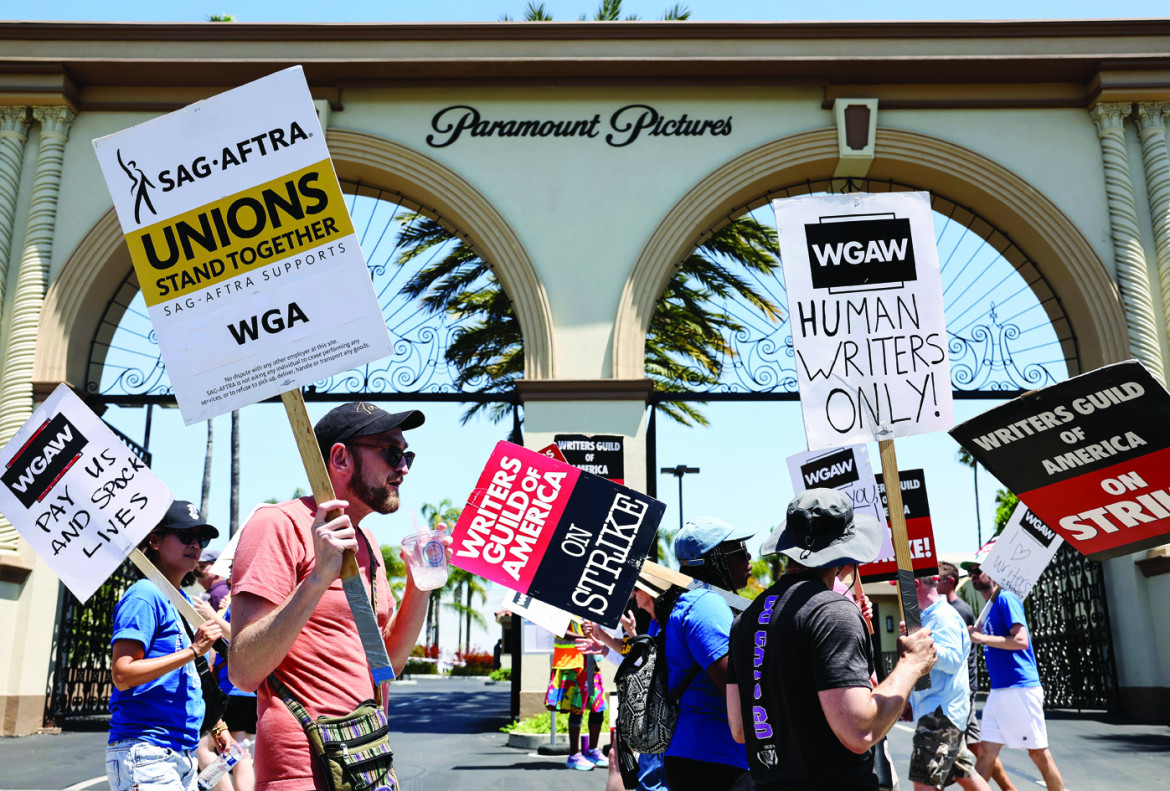Reportage
Cinema’s mecca goes on strike
Negotiations have collapsed, and now actors are joining the strike alongside screenwriters. The simultaneous shutdown of writing and acting work hasn't happened since 1960.

On Wednesday, in Los Angeles, the Emmy nominations for the year were announced. Normally that would have been the talk of the town, along with predictions ahead of the awards for the year’s best TV and streaming programs. This time, however, it was news of a different sort that hung over the city, which waited with bated breath to see if the actors’ strike would materialize.
In the tough negotiations between their union and AMPTP, the producers’ confederation, a federal mediator also intervened at the last minute; however, at midnight, confirmation came of what the studios had most feared: the 160,000 members of SAG, the film and TV actors’ union, would go on strike alongside the writers (members of WGA) who have already been on strike for more than two months. The simultaneous union action of the two categories will have the effect of crippling the Hollywood production machine.
With immediate effect, the actors – who had already organized numerous picket lines in front of the gates of studios and Netflix on Wednesday – will stop all their work, not only on the sets but also in the promotion of shows and films for the summer – a key season at the box office, for which the studios reserve their flagship blockbusters and offerings with the greatest commercial potential. With the strike, everything will grind to a halt: red carpet premieres, interviews, talk show guest spots, promotional tours abroad, and even appearances at festivals and events such as Comic Con, a key fantasy and sci-fi event scheduled for next week in San Diego and used by the studios as a platform for launching their major summer properties.
“SAG-AFTRA negotiated in good faith,” said SAG-AFTRA president Fran Drescher in a statement issued on Thursday, “but the AMPTP’s responses to the union’s most important proposals have been insulting and disrespectful of our massive contributions to this industry … Until they do negotiate in good faith, we cannot begin to reach a deal.”
At the heart of the actors’ demands is mainly their compensation, which, according to the actors – the vast majority of whom are not famous stars, but thousands of workers making ends meet with minor and occasional roles – has not kept pace with the cost of living. Their pay is also highly dependent on the royalties, or “residuals,” received based on the performance and number of airings of the properties. However, the old ways of counting how much a certain show has been aired have been radically altered by streaming, for which the numbers are closely guarded by the platforms that account for an increasingly large slice of the industry.
Thus, once again, we find technological development at the center of labor relations in Hollywood. In the 1980s and 1990s, the disputes involved compensation for home video distribution; in later decades, it was cable TV and pay-per-view. But few technologies have had as much impact on how content is consumed and produced as streaming has. Since 2019 alone, studios’ investment in production has quadrupled (from $5 billion to $19 billion annually) due to competition for subscribers and the adoption of the Netflix model by the majors, who were forced by the closure of theaters to develop their own platforms.
At the center of the present dispute is also a new technology that could revolutionize the production process. Both the writers and actors have put the issue of artificial intelligence at the core of their demands, together with the potentially disruptive, and destructive, effect it could have on their professions. In screenwriting, the technology is already partially in use, for brainstorming ideas or even writing entire treatments to be turned over to human writers for refinement (with a consequent reduction in compensation for the latter). For acting, with the technology’s rapid advancement in quality, the possibility of using artificial or partially-artificial performers is quickly moving out of the realm of science fiction and into our own.
Some stars have already included in their contracts a ban on digital alterations to their performances. For example, one case that made headlines was recounted by Keanu Reeves: a tear was added to his face in post-production, without his knowledge, to make a scene more dramatic. It is significant that now, minor actors are also demanding guarantees of preserving the “authenticity” of their performances – and it is even more revealing that the studios are reluctant to offer any.
Originally published at https://ilmanifesto.it/hollywood-strike-la-mecca-del-cinema-incrocia-le-braccia on 2023-07-14
